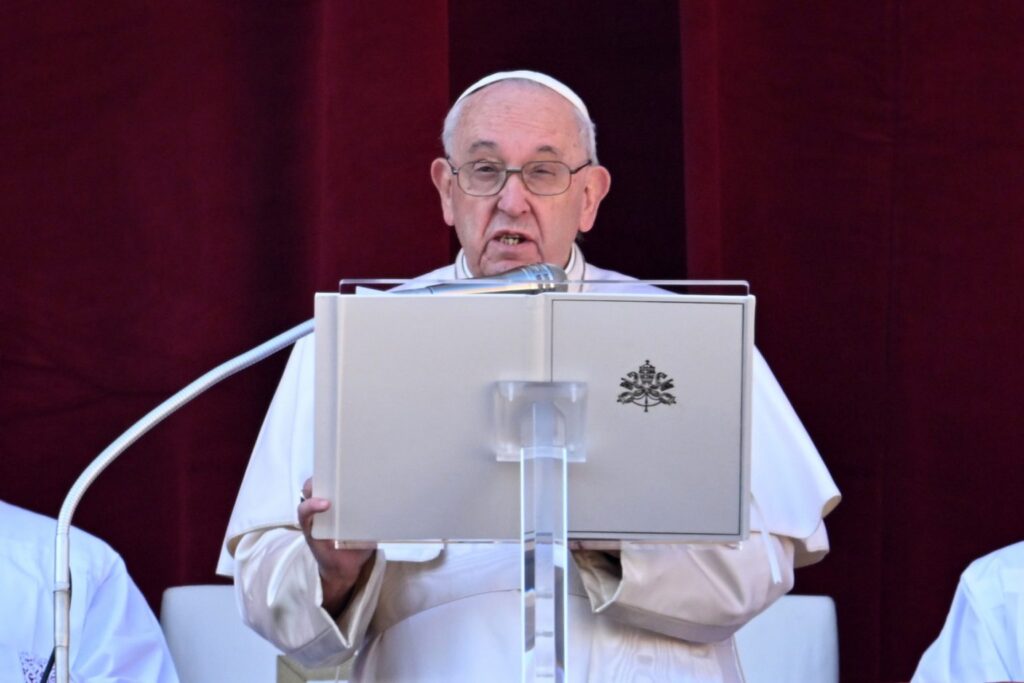
On Wednesday, Pope Francis made a strong appeal for religious unity to combat extremism and intolerance as his longest papal tour continued in Indonesia, the world’s most populous Muslim-majority country. During the first full day of his four-nation Asia-Pacific journey, the 87-year-old pontiff emphasized the critical role that all faiths must play in addressing key security challenges.
“To foster a peaceful and fruitful harmony that ensures peace, the Church seeks to strengthen interreligious dialogue,” the Pope stated in a speech following his meeting with Indonesian President Joko Widodo. He condemned extremists who, by distorting religion, use deception and violence to impose their views.
The Pope also pointed out that self-interest hinders the religious unity he advocates and fuels conflicts worldwide, without singling out any specific conflict. “In various regions, we see the emergence of violent conflicts, which often stem from the intolerant desire to impose one’s interests, position, or historical narrative at all costs,” he said.
President Widodo echoed the Pope’s message, highlighting that Indonesia and the Vatican share a commitment to promoting freedom and tolerance in an increasingly volatile world.
Indonesia has faced significant challenges with Islamist militancy, including the 2002 Bali bombings, which killed 202 people and triggered a major crackdown on extremism. Although Catholics make up less than three percent of Indonesia’s population—approximately eight million people—they are one of six officially recognized religions in the secular nation, alongside Islam, Protestantism, Buddhism, Hinduism, and Confucianism.
This marks the third papal visit to Indonesia, with the last one being by Pope John Paul II in 1989.
The Pope’s health, which has been fragile in recent years, is being tested on this extensive trip, which also includes visits to Papua New Guinea, East Timor, and Singapore. He had not traveled abroad since a visit to Marseille, France, in September last year. His medical team, including his doctor and two nurses, accompanied him to Indonesia, but Vatican spokesman Matteo Bruni emphasized that this is standard procedure.
Despite concerns about his health, the Pope appeared refreshed upon his arrival in Jakarta on Tuesday and again during his meeting with Widodo on Wednesday morning. Arriving in a civilian Toyota car, he was greeted enthusiastically by crowds of children dressed in traditional costumes, waving flags and shouting, “Welcome Pope.” He met with Widodo and Defense Minister Prabowo Subianto, Indonesia’s president-elect, who will assume office next month.
Interfaith relations are the central theme of the Pope’s visit to Indonesia. On Thursday, he is scheduled to meet with representatives from all six recognized religions at the Istiqlal Mosque, the largest mosque in Southeast Asia and a symbol of religious coexistence. The Pope and the mosque’s grand imam will sign a joint declaration addressing the “dehumanization” caused by conflict and environmental degradation.
Later, the Pope will celebrate mass at the national football stadium, which is expected to be filled with Catholic worshipers. In a gesture of solidarity, the Indonesian religious affairs ministry has asked TV stations to replace their usual Muslim dusk prayer videos with text reminders during the mass.
Before these events, the Pope will address local Catholic faithful at Jakarta’s cathedral, which is connected to the mosque by a “tunnel of friendship.” The cathedral was rebuilt at the end of the 19th century after a fire, and it has recently become a popular spot for Christians to take selfies with a life-sized cutout of the Pope.
The Pope will conclude his day with a meeting with young people involved in a global network of schools he established in 2013 to help disadvantaged children.
